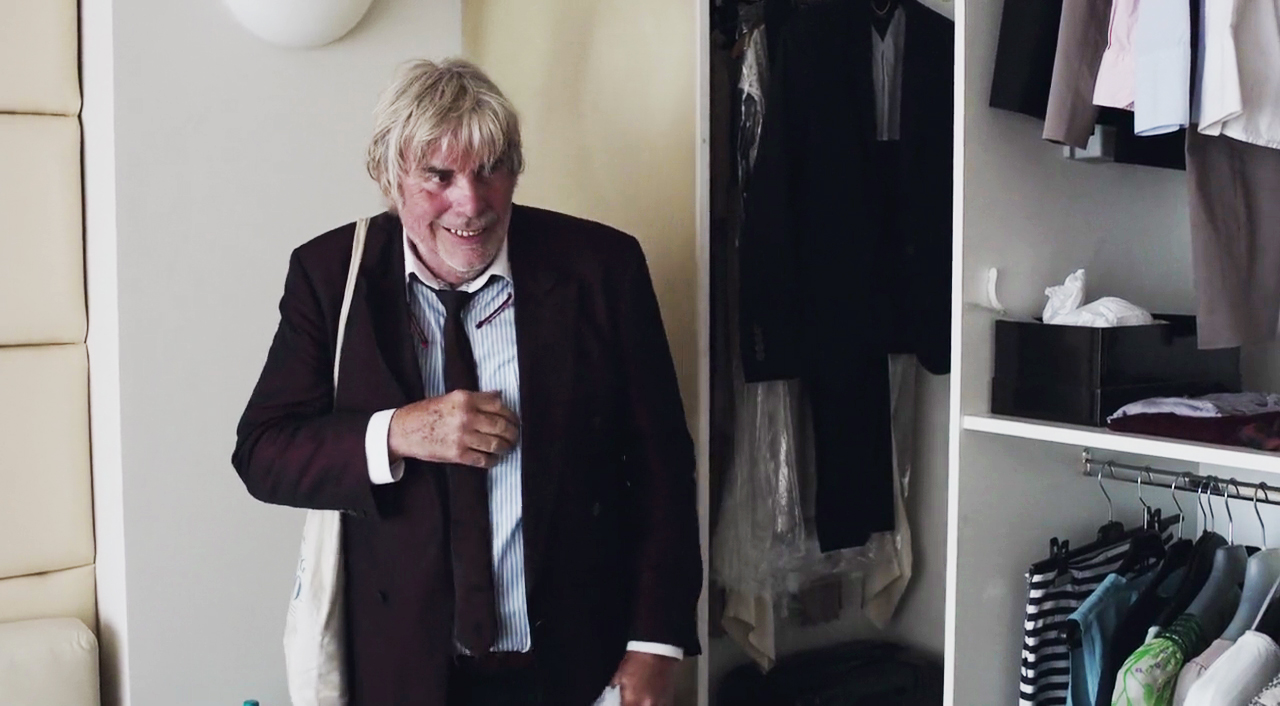
With a title that resembles a swanky fashion label, Toni Erdmann is anything but modish. An intricate, culturally rooted father-daughter tale, the film is high on pathos with an omnipotent shadow of loneliness looming large.
For a film that runs for an excruciating 160 minutes, our ‘wait’ for the plot to unfold isn’t too easy. Amusingly so, the first hour is rather brisk. It is only when Winfried (Peter Simonischek) begins to assume his alternate identity that the film slows down. No, it doesn’t really lose its steam there as writer-director Maren Ade has her reasons to meander a bit before reaching the finale. In due course, she decides to address other significant topics like globalization and Romania’s economic scenario. One might find it slightly cumbersome to decipher multiple layers there but Toni Erdmann would have just been a plaintive, colourless story if not for these smart textures and satirical wit.
Talking about humour, Maren Ade seems to be a hilarious person. Especially when it comes to portraying the business community or playing with perceived social appropriateness, Ade seems to be a pro in finding humour in them all. At times even the film’s long silences or impromptu gestures evoke laughter – when you least expect them to. Ah, well…
On the flip side, the film’s usage of multiple languages (including non-native English) jars. For a film that has its foundation in Eastern Europe’s intricate issues, mere subtitling doesn’t suffice. Moreover, to connect with leads (Ines and Winfried), one ought to understand their internal conflicts, motivations and the way their status quo developed over a period. One quickly seem to reminisce Cristian Mungui’s Bacalaureat (Graduation) and Cristi Puiu’s Sieranevada – both of which skilfully portrayed similar economic and emotional landscapes. Also, it wouldn’t be wrong to state how the film wastes a good amount of screen time towards the end, taking the story nowhere, building no context whatsoever. As we await the writer to justify her reasons in doing so, the film meets a sudden uneventful end. Not that it is appalling as such but for a film that had a promising mounting, the finale was abrupt and unimpactful.

Having said that, Toni Erdmann for a considerable part is an example of empathetic writing laced with edgy dialogues and evocative character development. Furthermore, it is intelligent how Toni Erdmann lampoons the entire corporate community in unabashed glory. Ines’s equation with her resource Anca (Ingrid Bisu) and boss Gerald (Thomas Loibl) are notable especially, with a hilarious final scene of them all in her apartment.
Fueled by several uncomfortable and bitter emotions, Toni Erdmann is a performance-driven film. Leading lady Sandra Hüller is stupendous as the conflicted businesswoman who decides to let go of herself eventually. Forming perfect foil is Simonischek as the fake-teeth flaunting father with a clause. As the show ends, one wonders why they picked Toni Erdmann as the title. After all, it a mere alias Winfried adopts for a while and the film is way beyond. Then again, at times all we deserve is an incognito existence – to breathe in some really good air, to get the bird’s view of the whole material world, and have a monstrous laugh over it. Who wouldn’t want to explore the Toni Erdmann side of self?
Rating: ★★★★

